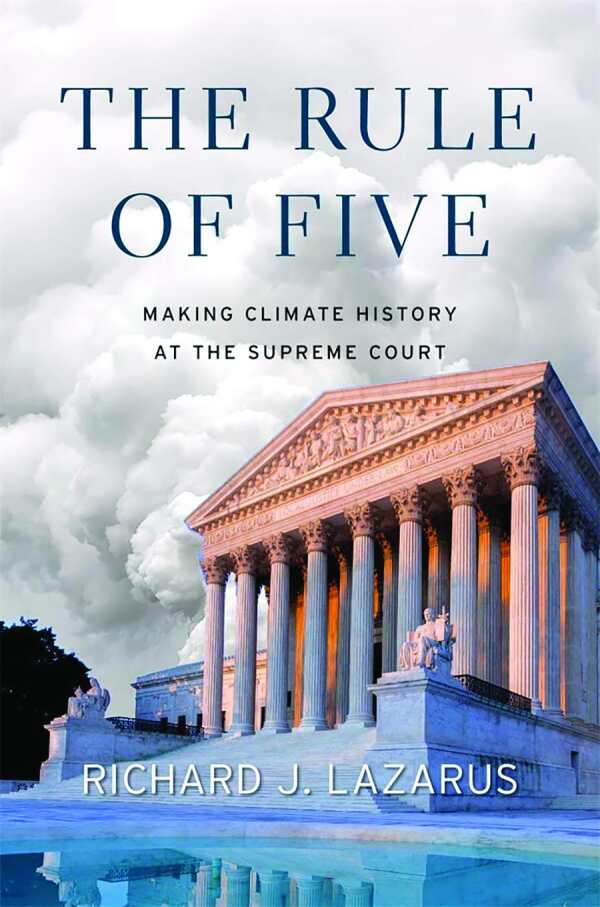The Rule of Five
Making Climate History at the Supreme Court
The Rule of Five is a character-driven thriller about how climate change came to the fore of US politics and legal action. Richard J. Lazarus’s book is no novel, however, but a suspenseful real-life account of an inspired activist attorney who battled Washington power brokers and sparked a win in the “most important environmental law case ever decided by the Supreme Court.”
Joe Mendelson, working for a tiny environmental nonprofit, petitioned the EPA to define carbon dioxide as a pollutant and to regulate greenhouse gases in the automotive and energy industries. His suggestion was punted around for years as career administrators and political appointees wrangled through the Clinton and Bush administrations, until a powerful coalition of attorneys general, cities, tribal groups, and blue-chip environmental advocates joined Mendelson to file suit in the US Court of Appeals.
The uneasy interactions of this strong-willed, competitive consortium of carbon dioxide warriors are shot through with powerful drama. Lazarus’s insightful, authoritative characterizations of lawyers, clerks, judges, and the nine Supreme Court justices will make any policy wonk’s heart flutter.
This backstory of the landmark Massachusetts vs US EPA ruling is absorbing as it dissects how American policy is made. Lazarus, who has argued an impressive number of cases before the nation’s highest court, has insider’s knowledge about how legal rulings wend their way to the Supreme Court; the arcane ways that justices make their decisions; and how elite attorneys hone their oral arguments during intense preparations.
Foreshadowed events and dynamic characters and policy ideas keep the work engaging. The Rule of Five is an exciting, tension-filled analysis of an improbable environmental triumph and an influential federal ruling whose effects have rippled out to the other branches of government, the states, and the private sector ever since.
Reviewed by
Rachel Jagareski
Disclosure: This article is not an endorsement, but a review. The publisher of this book provided free copies of the book to have their book reviewed by a professional reviewer. No fee was paid by the publisher for this review. Foreword Reviews only recommends books that we love. Foreword Magazine, Inc. is disclosing this in accordance with the Federal Trade Commission’s 16 CFR, Part 255.

